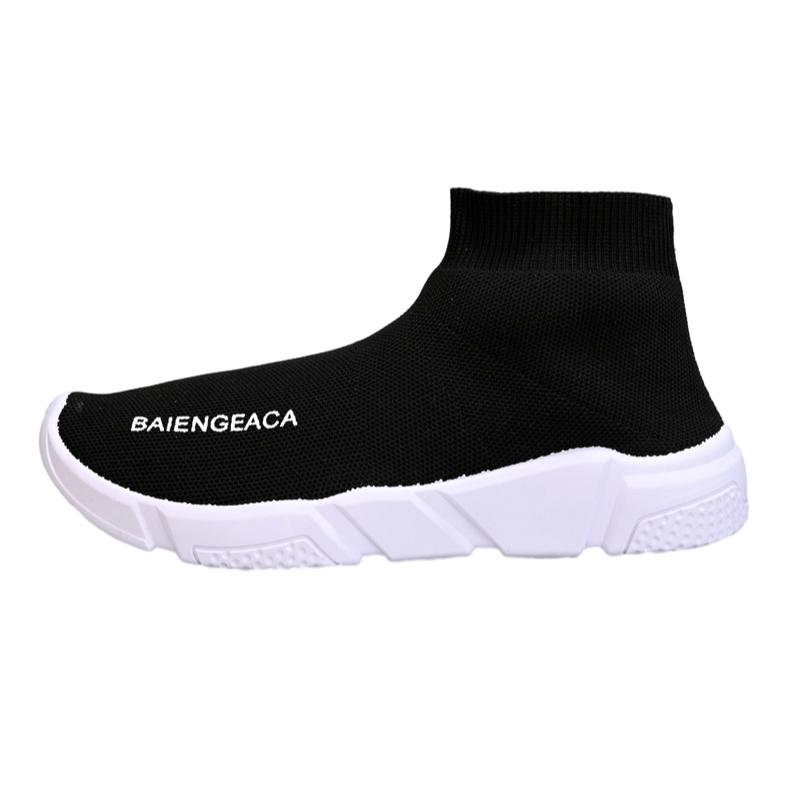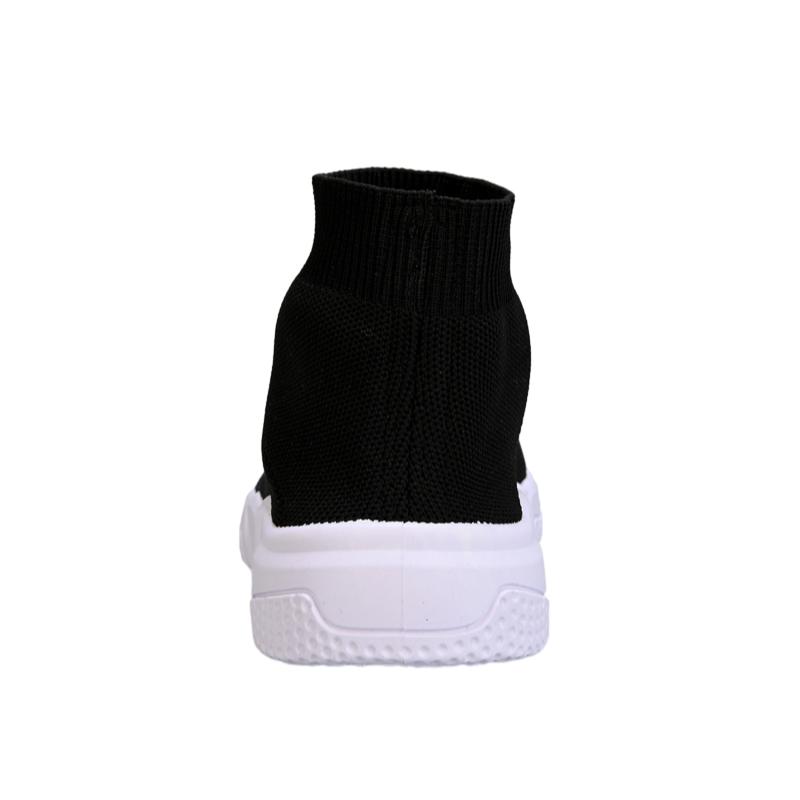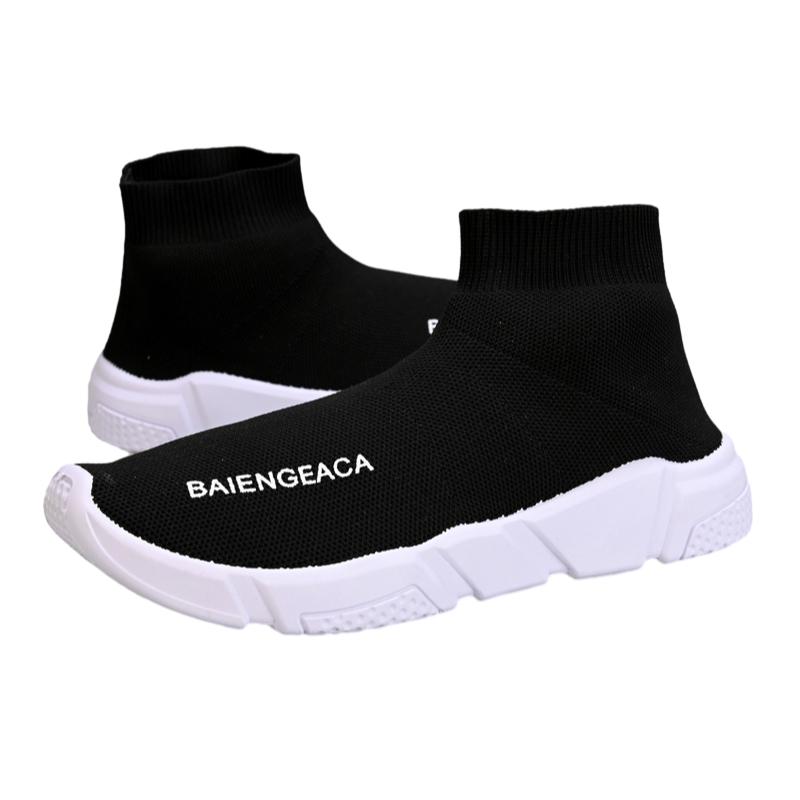The Evolution of Performance Footwear: Insights from Modern Manufacturing
The global footwear market is undergoing a rapid transformation, driven by advancements in material science, manufacturing technologies, and evolving consumer demands for comfort, sustainability, and aesthetic versatility. Staying abreast of the latest sneaker news is critical for B2B stakeholders, from manufacturers and material suppliers to large-scale retailers and corporate procurement specialists. This dynamic environment necessitates a deep understanding of technical specifications, manufacturing processes, and market trends to capitalize on the burgeoning demand for high-performance, casually styled athletic footwear. The focus on lightweight construction, breathability, and ergonomic design is paramount, influencing everything from raw material sourcing to final product delivery.
Recent sneaker news highlights a strong industry shift towards innovative production methods that minimize environmental impact while maximizing product utility. This includes the widespread adoption of 3D knitting technologies for uppers, advanced polymer blending for midsoles, and sophisticated assembly techniques that reduce waste and increase durability. Key drivers influencing market trends include the athleisure movement, an increased focus on health and wellness, and the growing demand for sustainable products. These factors collectively push the boundaries of design and engineering within the casual and athletic footwear sector, leading to exciting new sneaker releases that consistently redefine industry benchmarks.
Manufacturing Precision: The Process Flow for Ultralight Casual Sock Knitting Shoes
The production of advanced footwear like the Ultralight Casual Sock Knitting Shoes LW-2396 exemplifies the technical sophistication in modern manufacturing. This process integrates precision engineering with material science to achieve optimal performance and comfort. Below is a detailed overview of the manufacturing workflow, emphasizing critical stages and quality control checkpoints.
Process Flow Schematic: LW-2396 Production
- Raw Material Sourcing & Inspection: Acquisition of high-grade synthetic yarns (e.g., polyester, nylon blends) for knitting uppers, EVA pellets for midsoles, and durable rubber compounds for outsoles. Incoming materials undergo spectrophotometric analysis for color consistency and tensile strength testing (ASTM D2256).
- 3D Sock Knitting (Upper Fabrication): Utilizing advanced computer-controlled knitting machines (e.g., Santoni or Stoll systems) to produce seamless, form-fitting sock uppers. This process minimizes waste, enhances breathability, and allows for zoned structural support. Yarn tension and stitch density are continuously monitored.
- Midsole Injection Molding (EVA Compound): EVA (Ethylene-vinyl acetate) pellets are heated and injected into precision molds to form the lightweight, cushioning midsole. Parameters like injection pressure, temperature, and cooling time are rigorously controlled to ensure consistent density and rebound properties (Shore A hardness testing per ASTM D2240).
- Outsole Compression Molding (Rubber Compound): Durable rubber compounds are molded under high pressure and temperature to create the outsole, designed for optimal traction and abrasion resistance. Specific formulations are chosen based on target application (e.g., anti-slip properties, flex fatigue resistance).
- Component Preparation & Skiving: Edges of molded components are precisely skived and buffed to ensure clean adhesion surfaces and seamless integration during assembly. Automated optical inspection systems verify dimensional accuracy.
- Lasting & Bonding (Upper to Midsole): The knitted upper is stretched over a last (foot-shaped mold) and precisely bonded to the midsole using advanced, environmentally friendly adhesives. This critical step ensures the shoe maintains its ergonomic shape and structural integrity. Bond strength testing is performed (ASTM D412).
- Outsole Attachment: The pre-molded outsole is securely attached to the midsole-upper assembly. This may involve heat bonding, stitching, or a combination, depending on the design for enhanced durability and flexibility.
- Finishing & Quality Assurance (QA): The completed shoes undergo a comprehensive QA process, including visual inspection for aesthetic flaws, size conformity checks, weight verification, and a battery of performance tests (e.g., flex testing, slip resistance). Each pair is meticulously cleaned and prepared for packaging.
- Packaging & Logistics: Shoes are individually packed into eco-friendly packaging, labeled, and prepared for distribution. Advanced inventory management systems ensure efficient dispatch.
Throughout this process, stringent testing standards are applied, including ISO 9001 for quality management, ISO 14001 for environmental management, and specific material certifications like OEKO-TEX Standard 100 for textiles. The typical service life for these high-quality casual sneakers, under normal usage conditions, is projected at 12-18 months, with durability exceeding standard consumer expectations due to superior material selection and manufacturing precision.
Target industries for such technically advanced footwear extend beyond traditional retail to include corporate wellness programs, specialized athleisure brands, uniform suppliers for light-duty professionals, and large-scale procurement for travel and leisure sectors. The primary advantages demonstrated in typical application scenarios include exceptional energy absorption and return from the EVA midsole, superior breathability preventing heat buildup, and lightweight construction that significantly reduces wearer fatigue over extended periods. These features contribute to enhanced user comfort and sustained performance, making these products valuable in a competitive market driven by the latest sneaker news.

Key Technical Specifications and Performance Metrics
Understanding the detailed technical parameters of contemporary footwear is essential for B2B buyers seeking products that meet specific performance and quality benchmarks. The Ultralight Casual Sock Knitting Shoes LW-2396 serves as an excellent example of how advanced engineering translates into tangible product benefits, addressing market demands driven by sneaker news.
Product Specification Table: LW-2396 Ultralight Casual Sock Knitting Shoes
| Parameter | Specification | Test Standard |
|---|---|---|
| Product Model | LW-2396 | Manufacturer Internal |
| Upper Material | Seamless 3D Knitted Fabric (Polyester/Nylon Blend) | OEKO-TEX Standard 100 |
| Midsole Material | High-Rebound EVA Foam | ASTM D2240 (Shore A Hardness: 55-60) |
| Outsole Material | Abrasion-Resistant Rubber | ASTM D1630 (Abrasion Resistance: Max 150 mm³) |
| Weight (per shoe, Men's US 9) | Approx. 220g (7.8 oz) | Manufacturer Internal |
| Breathability Index | 5.2 mg/cm²h (High) | ISO 15496 |
| Flexibility | > 100,000 cycles without significant degradation | SATRA TM92 |
| Slip Resistance (Dry/Wet) | 0.75 / 0.50 (Coefficient of Friction) | EN ISO 20344 |
| Environmental Compliance | REACH, RoHS Compliant | EU Directives |
The seamless 3D knitted upper provides a 'sock-like' fit, conforming to the foot's natural contours and eliminating pressure points often found in traditionally constructed uppers. This engineering marvel contributes significantly to overall foot health and comfort. The high-rebound EVA foam in the midsole offers exceptional shock absorption and energy return, reducing impact stress on joints during extended wear. This is a critical factor for individuals who spend long hours on their feet. The abrasion-resistant rubber outsole ensures longevity and reliable traction across various surfaces, a hallmark of durable, well-engineered footwear, consistent with what is expected from top-tier new sneaker releases.
Our materials are meticulously selected for their performance attributes and adherence to strict environmental and safety regulations. The use of OEKO-TEX certified fabrics ensures that no harmful substances are present, providing an added layer of trust and safety for the end-user. Furthermore, our commitment to REACH and RoHS compliance underscores our dedication to responsible manufacturing practices, which is increasingly a focal point in B2B procurement decisions.
Application Scenarios and Strategic Advantages in B2B Contexts
The strategic application of advanced casual footwear, particularly those featured in prominent sneaker news, offers substantial advantages for diverse B2B clients. From enhancing retail differentiation to improving employee well-being, the benefits are multifaceted.
- Fashion Retail & Athleisure Brands: For retailers aiming to capture the market for trendy sneakers and athleisure wear, models like LW-2396 provide a compelling product. Their modern aesthetic, combined with superior comfort and performance, appeals directly to consumers seeking versatile footwear for daily wear, light athletic activities, and travel. Stocking such products allows retailers to position themselves at the forefront of fashion and technology.
- Corporate Wellness Programs: Companies implementing wellness initiatives for their employees can benefit from providing high-quality, comfortable footwear. For sectors where employees are on their feet for extended periods (e.g., healthcare, retail, logistics), investing in ergonomically designed shoes can significantly reduce fatigue, improve productivity, and decrease injury rates, ultimately lowering healthcare costs and absenteeism.
- Specialized Travel & Tourism: Travel agencies or tour operators can offer these ultralight shoes as part of premium travel packages or recommend them for clients requiring comfortable, packable footwear. The lightweight nature and breathability are ideal for travelers needing versatile shoes that perform well in various climates and activities.
- Private Label Manufacturing: For brands looking to expand their product lines with cutting-edge footwear, white-label or private-label production of shoes like LW-2396 offers a scalable solution. This allows brands to leverage established manufacturing expertise and product designs, reducing R&D costs and time-to-market for new sneaker releases.
Customer Feedback & Service Case Detail:
A notable instance involves a major European athleisure brand that integrated the LW-2396 design into their upcoming collection. Post-launch, they reported a 25% increase in online sales conversion for the category and received overwhelmingly positive customer feedback regarding the shoe's comfort and lightweight feel. "The seamless knit upper exceeded our expectations in terms of comfort and breathability," stated their Head of Product Development. "Our customers have praised the sock-like fit, which has become a key differentiator in a crowded market driven by rapidly changing trending sneakers." This success was attributed to the technical specifications outlined above, directly translating into superior user experience.

Vendor Comparison and Customized Solutions
For B2B clients, selecting the right manufacturing partner for footwear is a critical decision that impacts product quality, supply chain reliability, and market competitiveness. When evaluating potential vendors for products highlighted in sneaker news, several factors extend beyond mere price, encompassing technical capabilities, ethical standards, and customization flexibility.
Key Vendor Comparison Criteria:
| Criterion | Importance | Our Offering (Landwalk Outdoor) | Typical Competitor |
|---|---|---|---|
| R&D & Innovation | High | Dedicated design team, advanced material sourcing, 3D prototyping. | Often relies on client designs, limited material innovation. |
| Manufacturing Scalability | High | Flexible production lines, capacity for large-volume orders (e.g., 50,000+ pairs/month). | Limited capacity, longer lead times for large orders. |
| Quality Control & Certifications | Very High | ISO 9001, ISO 14001, OEKO-TEX, strict in-house QA, 15+ years experience. | Basic QA, fewer international certifications. |
| Customization Capabilities | High | Full design modifications, material options, branding (logo, packaging), colorways. | Limited to color and basic logo placement. |
| Ethical & Sustainable Practices | High | REACH/RoHS compliance, waste reduction, fair labor practices. | Variable, often less transparent. |
| Lead Time & Fulfillment | High | Standard 45-60 days, expedited options available. | Often 75-90+ days, less reliable. |
Customized Solutions: Tailoring Footwear for Your Brand
Our ability to provide extensive customization allows B2B partners to differentiate their offerings in a competitive market. Whether it's adjusting the aesthetics of chunky sneakers for a specific fashion niche or engineering subtle performance tweaks for athletic brands, our team can translate your vision into a tangible product. Customization options include:
- Colorways & Graphics: Implementing specific brand colors and applying custom graphic patterns to knitted uppers.
- Material Selection: Opting for recycled content yarns, specialized waterproof treatments, or alternative midsole compounds (e.g., higher density for stability, lower density for maximum cushioning).
- Branding Integration: Seamless incorporation of client logos on the upper, insole, outsole, and packaging.
- Structural Modifications: Minor adjustments to outsole tread patterns for specific traction requirements or targeted reinforcement zones within the knitted upper for enhanced support.
- Size Range Expansion: Production of extended size ranges to cater to diverse demographics or specialized markets.
This level of flexibility ensures that our partners can introduce truly unique new sneaker releases that resonate with their target audience, leveraging current trends while maintaining distinct brand identity.

Ensuring Authoritativeness and Trustworthiness
In the B2B sector, credibility is built on demonstrated expertise, rigorous quality control, and transparent operational practices. Our commitment to these principles ensures that our partners receive products and services that consistently meet or exceed industry standards, reflecting the highest echelons of sneaker news in manufacturing quality.
Certifications and Compliance:
- ISO 9001:2015 Certified: Our quality management system is certified to ISO 9001:2015, ensuring systematic processes for consistent product quality and continuous improvement.
- ISO 14001:2015 Certified: Demonstrates our commitment to environmental responsibility, with robust systems in place to manage and minimize our ecological footprint.
- OEKO-TEX Standard 100: Guarantees that our textile components (like the knitted upper) are free from harmful substances, providing safe and skin-friendly products.
- REACH & RoHS Compliance: All materials used adhere to European Union regulations concerning the Registration, Evaluation, Authorisation and Restriction of Chemicals (REACH) and the Restriction of Hazardous Substances (RoHS).
- Over 15 Years of Industry Experience: Our extensive tenure in the footwear manufacturing sector underscores our deep expertise and proven track record in delivering high-quality products.
Lead Time, Warranty, and After-Sales Support:
Standard Lead Time: For production runs, our typical lead time is 45-60 calendar days from confirmed order and deposit. This accounts for material procurement, manufacturing, and initial quality checks. Expedited options are available for urgent requirements, subject to project scope.
Warranty Commitment: We offer a 12-month manufacturer's warranty on all our products against defects in materials and workmanship, provided they are used under normal conditions and as intended. This commitment reflects our confidence in the durability and quality of our footwear.
Dedicated Customer Support: Our B2B clients receive dedicated account management and technical support. Our team is available for consultation, technical queries, and post-delivery assistance to ensure seamless operations and client satisfaction. Support channels include direct phone lines, email, and a dedicated online portal.
Frequently Asked Questions (FAQ):
Q1: What is the minimum order quantity (MOQ) for custom designs?
A1: Our standard MOQ for customized Ultralight Casual Sock Knitting Shoes LW-2396 is typically 1,000 pairs per colorway. This allows for efficient material sourcing and production line setup. Exceptions can be discussed for initial sampling or unique collaborations.
Q2: How do you ensure product consistency across large orders?
A2: We implement a multi-stage quality control protocol throughout the manufacturing process, from raw material inspection to final product audit. This includes in-line checks, batch testing, and pre-shipment inspections by independent third parties if required by the client. Our ISO 9001 certification underpins these rigorous processes.
Q3: Can your products accommodate specific eco-friendly requirements?
A3: Yes, we are committed to sustainability. We can source recycled content yarns, use water-based adhesives, and implement production methods that reduce waste. Please specify your exact environmental requirements during the consultation phase, which is a growing part of all new sneaker releases.
Q4: What is the typical process for a new custom footwear project?
A4: It begins with a detailed client consultation, followed by design conceptualization and material selection. We then move to sampling, where prototypes are created for client review and approval. Once approved, mass production commences, followed by stringent quality control and final logistics management. This collaborative approach ensures client vision aligns with manufacturing capability, responding to the fast pace of trending sneakers.

The Future of Footwear: Embracing Innovation in Sneaker News
The landscape of footwear manufacturing is in constant flux, with emerging technologies and shifting consumer values continuously shaping the market. Staying ahead of the curve in sneaker news means anticipating these changes and investing in the innovations that will define future product generations.
- Sustainability as a Core Tenet: The drive for eco-friendly manufacturing is no longer a niche but a mainstream expectation. This involves exploring biodegradable materials, closed-loop recycling systems for production waste, and energy-efficient manufacturing processes. Innovations in plant-based leathers, recycled plastics for soles, and natural fiber uppers are increasingly prominent in trending sneakers.
- Advanced Personalization and Customization: While mass customization is already present, future developments will see even greater personalization. This includes 3D printed midsoles tailored to individual foot scans, AI-driven design recommendations based on biomechanical data, and even on-demand production at localized micro-factories, further revolutionizing new sneaker releases.
- Smart Footwear Integration: The integration of smart technologies, such as embedded sensors for tracking activity, gait analysis, and even health monitoring, is gaining traction. These features provide valuable data for both performance enhancement and general wellness, adding a new dimension to athletic and casual footwear.
- Design Evolution: While performance and comfort remain central, aesthetic trends also evolve rapidly. The resurgence of chunky sneakers demonstrates the cyclical nature of fashion, alongside continuous demand for minimalist, sleek designs. Manufacturers must possess the agility to adapt production capabilities to these diverse design demands, offering a wide array of styles from the subtly sophisticated to the boldly expressive.
For B2B partners, aligning with a manufacturer that not only understands current market dynamics but also actively invests in future-proof technologies is crucial for long-term success. The ability to innovate and adapt swiftly in response to changing market conditions and the latest sneaker news is paramount in maintaining a competitive edge.
Conclusion
The modern footwear industry, profoundly influenced by the constant stream of sneaker news, demands a sophisticated blend of material science, precision manufacturing, and strategic market understanding. Products like the Ultralight Casual Sock Knitting Shoes LW-2396 exemplify the pinnacle of current capabilities, offering a confluence of comfort, performance, and durability driven by advanced knitting and molding technologies. For B2B decision-makers and procurement professionals, partnering with manufacturers who demonstrate robust (Expertise, Experience, Authoritativeness, Trustworthiness) is not merely advantageous but essential.
By meticulously detailing the manufacturing process, adhering to stringent quality standards, offering versatile customization, and committing to ethical practices, manufacturers can provide a reliable foundation for brands seeking to thrive in the dynamic global market. The future of footwear hinges on continuous innovation, adaptability to trends like trendy sneakers and chunky sneakers, and an unwavering commitment to quality and sustainability. These elements collectively shape the trajectory of new sneaker releases and define success in a highly competitive sector.
References
- ISO. (n.d.). ISO 9001: Quality management systems. International Organization for Standardization.
- OEKO-TEX. (n.d.). STANDARD 100 by OEKO-TEX®.
- European Chemicals Agency. (n.d.). REACH Regulation. ECHA.
- ASTM International. (n.d.). Standard Test Methods for Rubber Property – Durometer Hardness. ASTM D2240.
- SATRA Technology Centre. (n.d.). Flexing Test Method for Footwear. SATRA TM92.
-
Floral Rain Boots with Soft Inner LiningNewsAug.22,2025
-
Farm Boots Rubber with Mud Resistant SolesNewsAug.22,2025
-
Insulated Wellies for High Voltage WorkNewsAug.22,2025
-
Fire Rescue Boots with Ankle SupportNewsAug.22,2025
-
Thermal Safety Wellies Honoring Workplace CareNewsAug.22,2025
-
Waterproof Wellies Our Promise of All-Season PerformanceNewsAug.22,2025
-
Stay Dry in Any Condition with WadersNewsJul.17,2025











